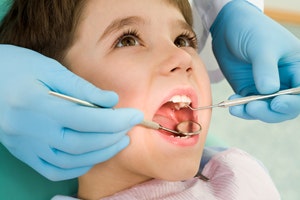Causes of sensitive teeth

If you tend to stay away from cold and frozen foods and hot drinks because your teeth are too sensitive, maybe it’s time to find out what causes this unpleasant problem and do something about it. The vast majority of the tooth’s content consists of dentin – a material that includes tiny tubules packed with very small nerve endings. The dentin is kept safe with the help of a strong outer layer made of enamel. It is also good to know that the dentin goes down all the way to the root and in this area, it is protected with a cementum coating. Once the dentin loses the protection of these coatings, it tends to react with sticky, acidic, cold and hot foods and beverages.
Now let’s highlight the direct causes of teeth sensitivity:
– Tooth erosion caused by beverages and foods loaded with acids – Worn enamel as a result of improper intense brushing of teeth – Recession of gums – Tooth decay, broken and damaged teeth and compromised fillings – Reaction after dental treatment – Teeth grinding (bruxism)
By learning more about the symptoms, your dentist should be able to determine the exact cause of sensitive teeth. After that, they can provide proper treatment. In many cases, the treatment consists of cavity repair or simple filling replacement in case it’s worn. But, in cases when the direct cause is gum recession, it might be necessary to use gum graft because the protection of the root surface is very important.
There are some cases when determining the cause of teeth sensitivity is unclear, but even in cases like this, patients can get an efficient treatment. For instance, some dentists use fluoride gel for relief. There are also many desensitizing toothpastes on the market that have proven to be helpful.
If you notice that you have tooth sensitivity, then you should take this situation seriously and talk to your dentist. For more advice, please contact us now.
Call us now to make an appointment

Keep reading...
What can you drink during your Invisalign treatment
One of the rules of the treatment that patients often struggle with is the water rule. While you are wearing…
Top 6 things to know before starting Invisalign treatment
In this guide, we’re sharing six things we wish all patients knew before starting treatment. This could help you to…
How Much Does Invisalign Cost in the UK?
Instead of fixed braces, you wear a series of clear plastic aligners. These aligners apply gentle pressure to your teeth…
Does Invisalign Work? Pros, Cons, Effectiveness
Another popular method for straightening your teeth is Invisalign. This system was inspired by the clear plastic aligners that are…

Hear from our
happy patients
These are just some of the kind words about our practice, direct from our incredible patients.









